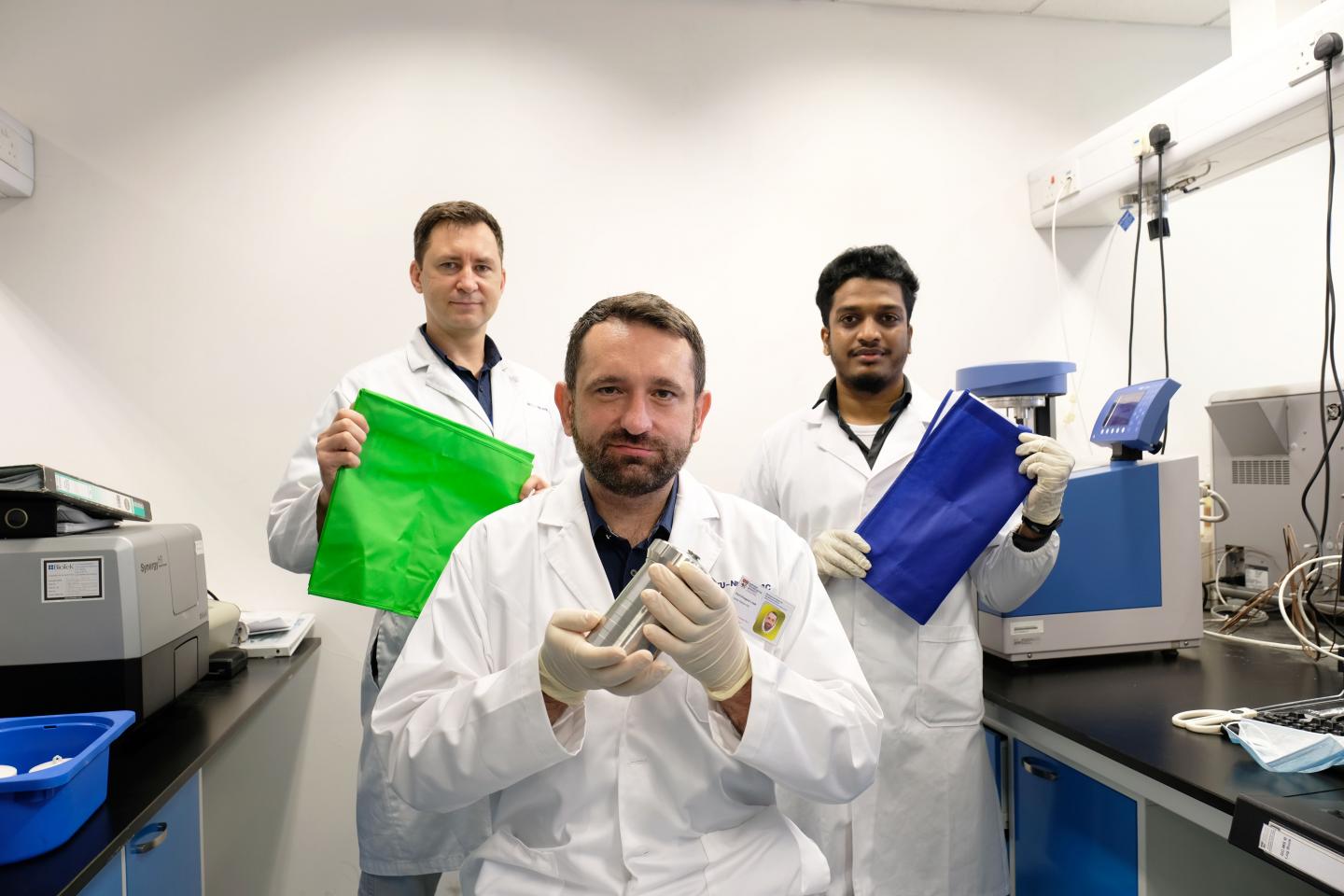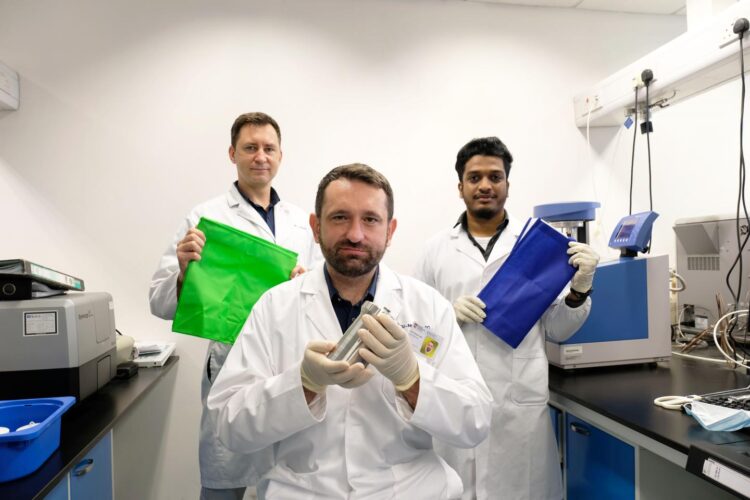
Credit: NTU Singapore
Scientists from Nanyang Technological University, Singapore (NTU Singapore) have modelled the cradle-to-grave environmental impact of using different types of shopping bags and report that in cities like Singapore, single-use plastic bags (made from high-density polyethylene plastic) have a lower environmental footprint than single-use paper and multi-use cotton bags.
Reusable plastic bags made from polypropylene non-woven plastic were the most eco-friendly option, followed by single-use plastic bags.
The model revealed that cotton and kraft paper bags have relatively bigger environmental footprints due to their greater contribution to global warming and eco-toxicity potential in their production.
However, the NTU team stressed that their model applied specifically to Singapore and might be applicable in cities such as Tokyo, Hong Kong, and Dubai. Reusable and single-use plastic bags would be a comparatively better environmental option only in these cities, due to the model’s focus on densely populated metropolitan areas that have waste management structures with similar end-of-life incineration facilities.
The findings were published in the scientific Journal of Cleaner Production in August 2020.
Assistant Professor Grzegorz Lisak, Director of Residues & Resource Reclamation Centre at the Nanyang Environment and Water Institute (NEWRI), who led the research, said: “Our main message is that re-usable plastic bags are the best option, provided that they are re-used many times – over 50 times to be precise. However, one surprising conclusion is that, in our model, in a single-use case, plastic bags, if treated properly afterwards, are less environmentally detrimental than the other types of bags in this study.”
“It is essential to evaluate the implications case by case for dealing with plastic waste. In a well-structured closed metropolitan waste management system with incineration treatment, using plastic bags may be the best option that is currently available, provided that there is no significant leakage of waste into the environment.”
To reach their conclusions, the team carried out a life cycle analysis of five types of bags to evaluate the environmental impacts associated with their production, distribution, transportation, waste collection, treatment, and end-of-life disposal.
The research team found that the global warming potential of a single-use kraft paper bag was the highest, over 80 times that of reusable plastic bags. Single-use plastic and reusable cotton bags (reused 50 times) were calculated to have over ten times the global warming potential of reusable plastic bags (reused 50 times).
To offset the emission equivalent to equal that of the creation of one single-use plastic bag, a reusable plastic bag would need to be reused four times.
The team also observed that the relative negative environmental impacts of cotton and kraft paper bags in the model are due to their production processes that consume immense amounts of water and natural resources. Hence, improving the production methods, optimizing resource usage, and following sustainable practices could in future favour the usage of bags made from cotton and paper.
Relevance to cities and their waste reduction goals
In the case of Singapore, the team recommends the usage of reusable plastic bags to the greatest extent possible to reduce consumption of single-use plastic bags. Reprocessing single-use plastic bags would be a good policy goal to cut down on their environmental impact.
Asst Prof Lisak said that based on 2018 statistics in Singapore, reducing the single-use plastic grocery bag consumption by half could prevent over 10 million kg-CO2 equivalent emissions in a year.
Moving forward, the team will be embarking on further studies connected to plastic waste management, waste plastic upgrading and the development of new products
###
Media Contact
Joseph Gan
[email protected]
Original Source
http://news.
Related Journal Article
http://dx.





